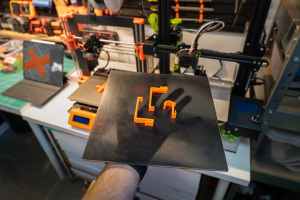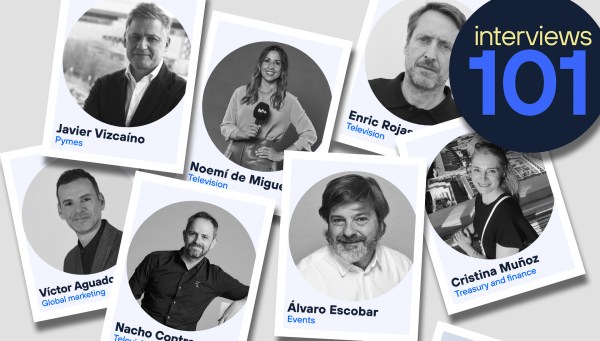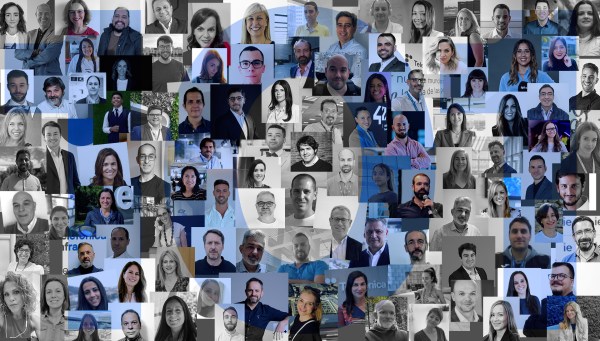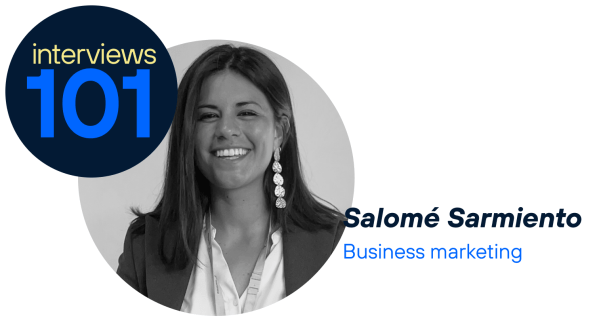Tell us a little about yourself. What does your job at Telefónica involve?
I am currently part of the Agile Centre of Excellence Venezuela (CoE Ágil Ve) and work as a Scrum Master in the People Management Department.
Within the organisation, we are dedicated to promoting the adoption of agile practices, standardising tools and processes, providing training and supporting different areas to ensure a successful cultural and operational transformation towards agility. Our focus is on fostering a culture of continuous improvement that consistently generates value.
How would you define the work of a Scrum Master?
We are catalysts for change, psychologists, negotiators. Beyond facilitating ceremonies and/or events, I focus on ensuring that each sprint generates value for both the client or end user and the organisation by measuring tangible benefits and motivating and recognising each member of the work team. It is not just about removing obstacles and promoting continuous improvement.
It is a role that combines servant leadership, creativity, systemic thinking, and facilitation skills so that teams become true value generators. In my case, I also integrate sustainability and process audit criteria so that agility has a measurable and responsible impact. I am committed to the role of Integral Scrum Master.
What are the particularities of the agile Scrum methodology?
Scrum is based on transparency, inspection and adaptation. It is synergy between work teams. What makes it unique is its focus on people. It seeks functional and simple solutions in complex environments. At Telefónica Venezuela, we have been promoting it not only in software development teams and strategic business projects, but also in cultural transformation and sustainability initiatives.
What are the main functions of the Scrum Master?
- Facilitate Scrum events and ensure their purpose.
- Eliminate impediments that affect team productivity.
- Promote self-organisation and continuous improvement.
- Serve as a bridge between the team and the organisation, fostering an agile culture. Create synergy between multidisciplinary teams.
In my case, I also carry out lean process analysis to design proposals for process optimisation and digitalisation, design visual boards, indicators and fun activities that reinforce collaboration and learning.
In addition, I train other teams in the adoption of these agile methodologies using digital tools.
What training is necessary for this type of work?
From my experience, in addition to certifications such as Scrum Master and knowledge of methodologies such as Kanban, OKR (Objectives and Key Results) and Design Thinking, it is essential to have training in facilitation, leadership, communication and change management. In my career, I have complemented this with Lean Methodologies, Six Sigma and environmental auditing, which allows me to approach agility from a comprehensive and sustainable perspective. But above all, you need to have a good attitude.
What professional profiles are most common?
The most common are developers, UX/UI designers, Product Owners, and business analysts. However, we are increasingly seeing hybrid profiles: facilitators, agile coaches, administrators, engineers, sustainability experts, and transformation leaders. This diversity enriches teams and allows challenges to be addressed from multiple perspectives.
What impact does the development of new technologies have?
New technologies enhance agility: they automate tasks, improve traceability, enable real-time data visualisation, facilitate data analysis and decision-making, and facilitate remote collaboration, transparency and productivity. At Telefónica, we use them to scale best practices, measure impact and connect distributed teams. They also allow us to integrate environmental criteria into processes as part of our digital sustainability vision.
Which people working at Telefónica would you nominate for this interview who you consider to be excellent at their job?
Raquel Flores Warehouse Operations Leader/Environmental Management System Auditor.







